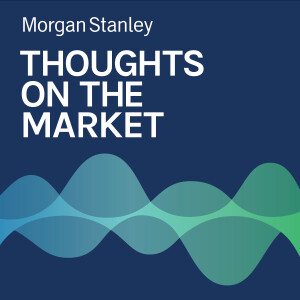
How Mexico’s Elections Could Change Global Markets
 2024-05-10
2024-05-10
Morgan Stanley’s Chief Latin America Strategist explains the importance of Mexico’s upcoming presidential election, laying out the possible investment implications of potential policy reforms.
----- Transcript -----
Welcome to Thoughts on the Market. I’m Nik Lippman, Morgan Stanley’s Chief Latin America Strategist. Along with my colleagues bringing you a variety of perspectives, today I'll talk about why Mexico’s upcoming election matters for markets.
It's Friday, May 10, at 10am in Sao Paulo.
Voters in Mexico will choose a new president in less than a month, on June 2. The two leading candidates – Claudia Sheinbaum and Xóchitl Gálvez – have presented strong campaigns amidst a tense political backdrop. And yet, asset prices have not yet begun to react to potential election outcomes.
There’s significant policy differences between Sheinbaum and Galvez – thus an important investment debate around each of them. However, polls suggest a strong lead for Sheinbaum, who is the candidate from the ruling party Morena. In fact, it seems that the key debate that markets are focused on right now is not so much who wins, but rather what type of president Sheinbaum would be, if she does get elected.
If she does indeed win, the expectation is for policy continuity post-election—particularly as it relates to Mexico’s nearshoring – or moving industrial supply chains from Asia to North America. This trend has been a major driver of the country’s economy and major asset classes.
And so the market seems to be focusing squarely on policy decisions that may be taken by the incoming administration. Mexico is in a strong position to benefit from its relationship with the United States and as well as the nearshoring opportunities. We see a positive skew for both equities and credit, and think the election can act as a catalyst for assets that have traded cheaply.
Yet, significant reforms are necessary to take full advantage of this setup. Indeed, we would argue that rapid and deep structural reforms would be crucial, especially when it comes to fiscals and the energy space. For example, we think there could be a need for stronger partnership between the public and the private sector and a rethink of parts of Mexico’s electricity model. If Mexico solves its electricity supply-side challenges, it can build on its favorable nearshoring position. But on the other hand, there’s no industrial revolution without electricity.
However, the risk-reward for the Mexican peso is slightly different. It has already benefited from the rise in foreign investment - and the high interest rate differential between Mexico and the United States.
With all that said, there are risks from the elections, too. If any political party wins two-thirds majority, it opens the possibility for changes to the constitution. And current proposals by Mexico’s sitting president could open the door for larger fiscal deficits; and potentially some more unorthodox policies down the road. We will continue to keep you posted on Mexico’s election outcomes.
Thank you for listening. If you enjoy Thoughts on the Market, take a moment to rate and review us wherever you listen. It helps more people find the show.
More Episodes
 2024-11-05
2024-11-05
 2024-11-01
2024-11-01
 2024-10-31
2024-10-31
 2024-10-30
2024-10-30
 2024-10-29
2024-10-29
 2024-10-28
2024-10-28
 2024-10-25
2024-10-25
 2024-10-23
2024-10-23
 2024-10-22
2024-10-22
 2024-10-15
2024-10-15
 2024-10-14
2024-10-14
 2024-10-11
2024-10-11
 2024-10-10
2024-10-10
Create your
podcast in
minutes
- Full-featured podcast site
- Unlimited storage and bandwidth
- Comprehensive podcast stats
- Distribute to Apple Podcasts, Spotify, and more
- Make money with your podcast
It is Free
- Privacy Policy
- Cookie Policy
- Terms of Use
- Consent Preferences
- Copyright © 2015-2024 Podbean.com




